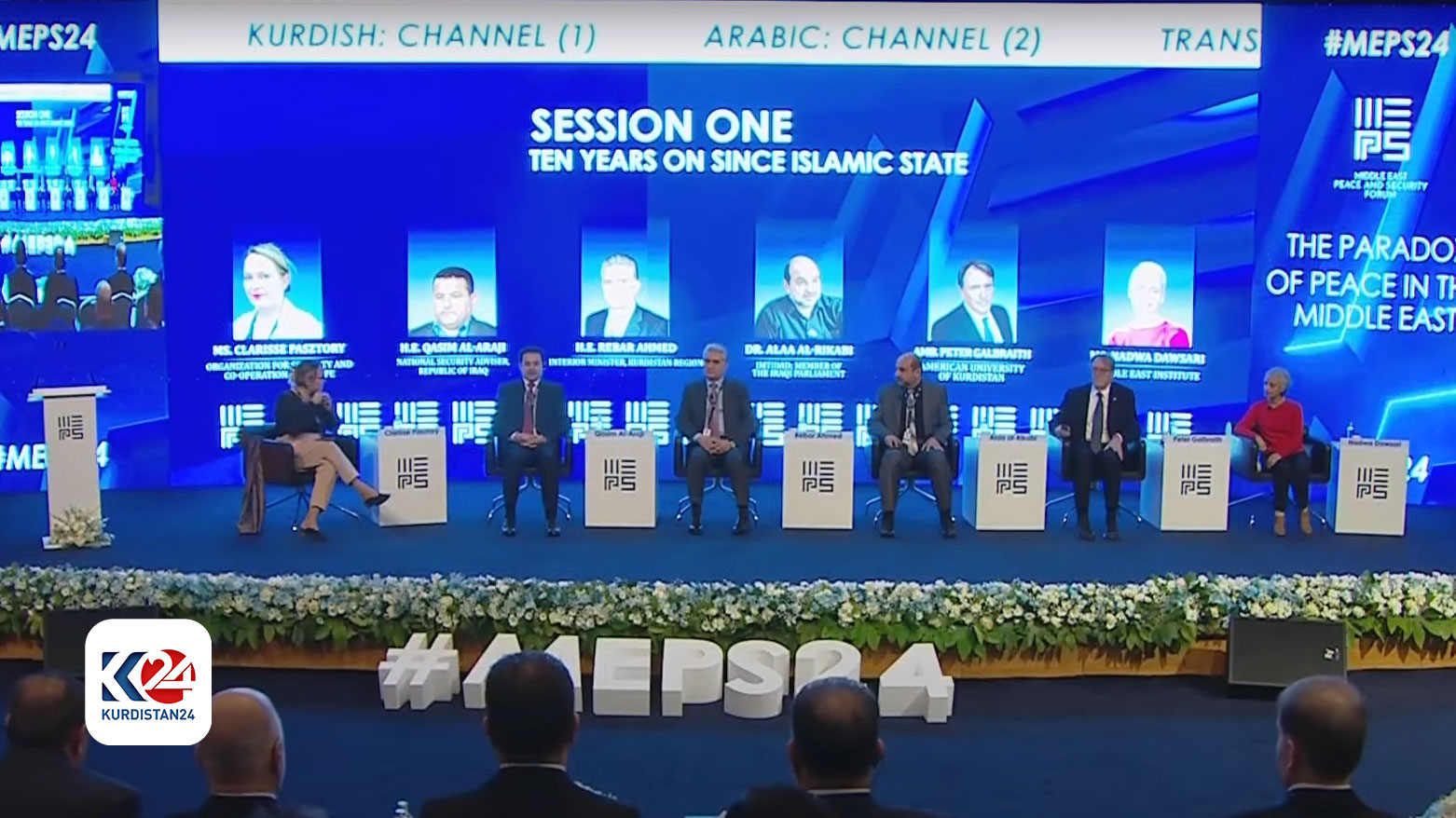First session at MEPS24 Day 2 reflects on ‘Ten Years on Since Islamic State’
KRG Minister of Interior Rebar Ahmed recalled that in 2014, “President Barzani warned Baghdad officials of the threat of ISIS,” underlining the foresight of Kurdish leadership.

Nov. 23, 2024
ERBIL (Kurdistan24)— The first session of the Middle East Peace and Security (MEPS24) Forum, titled “Ten Years on Since Islamic State,” commenced with a panel of distinguished speakers chaired by Ms. Clarisse Pasztory from the Organization for Security and Co-operation in Europe (OSCE).
Discussions centered on the enduring impact of ISIS, the root causes of its emergence, and the ongoing threat it poses to the region.
Key Remarks on the Root Causes of ISIS
Qasim Al-Araji, Iraq’s National Security Adviser, emphasized the foundational issues that paved the way for ISIS.
“The absence of a national project caused many troubles in Iraq,” he stated, linking governance failures to societal unrest.
However, he noted a positive development: “We have reached a stage where our society does not accept sectarianism,” signaling a shift toward national unity.
Regarding the repatriation of ISIS families, al-Araji, Iraqi National Security Adviser explained that "Iraq has returned more than 2,500 Iraqi families out of a total of 5,000 families in al-Hol camp to Iraq."
Dr. Alaa al-Rikabi, a member of the Iraqi Parliament and leader of the Imtidad Movement, added:
“The absence of social justice contributed to the emergence of ISIS in 2014,” pointing to systemic inequality as a key driver of extremism.
Al-Rikabi also stressed the need for broader and more effective reforms. "We must start with real political and economic reforms in Iraq," he stated.
The Role of the Kurdistan Region in Combating ISIS
Rebar Ahmed, the Kurdistan Regional Government’s (KRG) Interior Minister, highlighted the pivotal role of Kurdish peshmerga forces in the fight against ISIS.
He recalled that in 2014, “President Barzani warned Baghdad officials of the threat of ISIS,” underlining the foresight of Kurdish leadership.
Ahmed stressed the significance of international cooperation: “The formation of coalition forces was a very critical decision,” he said, noting that the Peshmerga forces played a central role in defeating ISIS on the ground.
However, Ahmed warned that the fight is far from over:
“The threat of ISIS is not over. ISIS is now stronger than before. That’s why the presence of the coalition forces is still needed.”
He concluded, “We need coalition forces to defeat ISIS,” emphasizing the necessity of continued international military support.
Addressing the Path Forward
The panel’s discussions reinforced the importance of addressing structural inequities, promoting social justice, and maintaining military vigilance to prevent ISIS from resurging. The session provided a comprehensive reflection on the challenges and lessons from the last decade, with a focus on building resilience for the future.